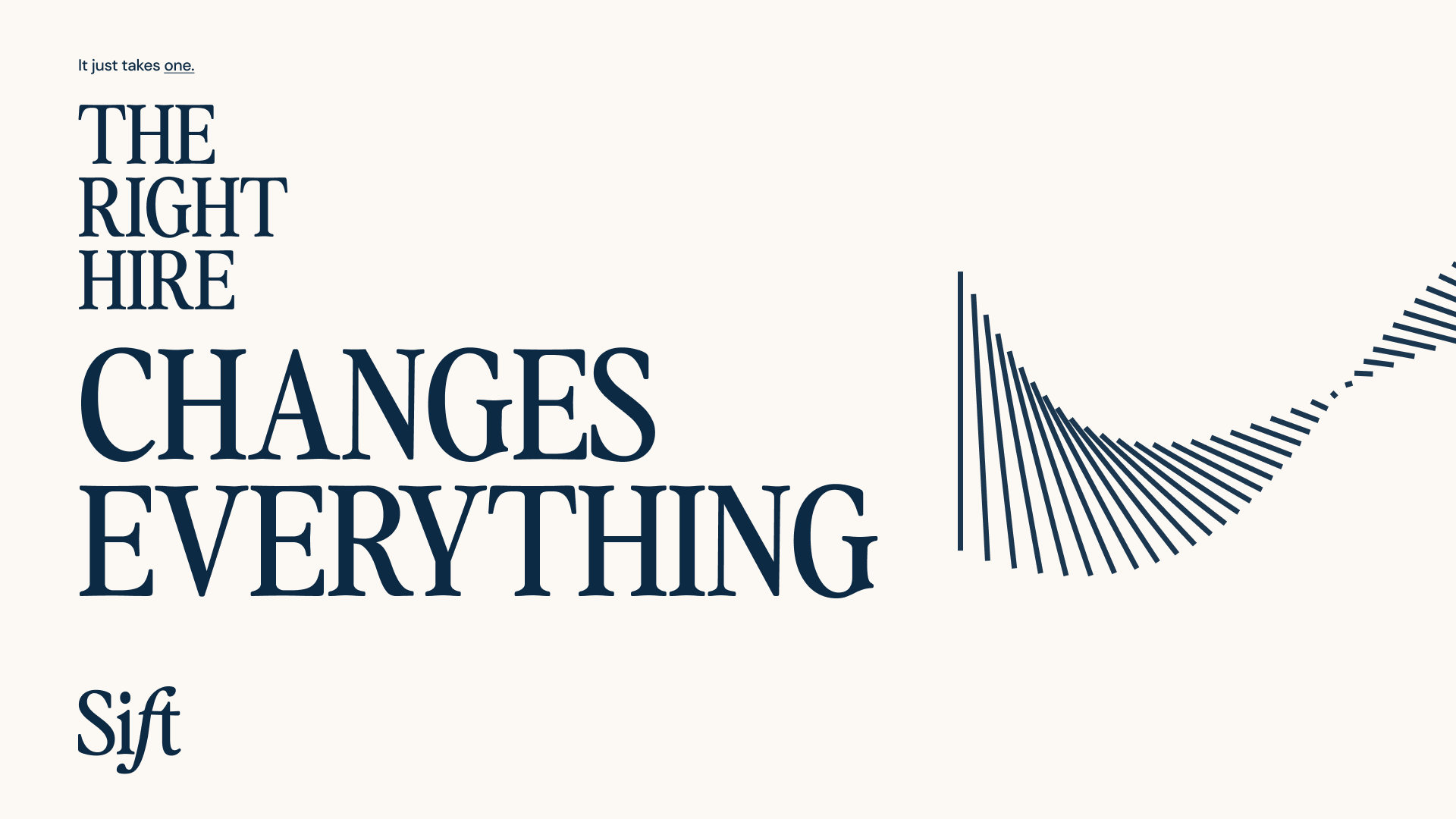At 25madison, we are focused on helping founders build companies that last - from the earliest ideas through product, brand, and talent. Sift was born out of that same mission: to help early-stage companies (Seed to Series B) find technical talent that knows how to build from zero.
Earlier this month, I attended the VC Platform Global Summit in Miami, where leaders across venture shared how talent strategies are evolving. There is a clear shift happening. Companies are realizing that the way they build their early teams will define how they scale - or if they scale at all.
Here are a few key takeaways for founders, investors, and operators thinking about talent in today’s market.
Early Structure Matters More Than Ever
Hiring without structure used to be seen as a side effect of moving fast. Today, it is one of the biggest risks to scaling a company.
The most successful teams are putting structure in place earlier - even before their first few hires.
A few best practices stood out:
- Define clear competency models before opening a search
- Use structured rubrics to guide evaluation, not just intuition
- Pay candidates for meaningful case study work to set expectations early
- Customize hiring processes for each role based on the real needs of the business
- Leverage AI tools for sourcing support, but keep human judgment at the center
At Sift, we help founders set up these foundations from the start, so they are not scrambling to fix gaps later when speed matters most.
Internal Teams and Search Partners Need Clear Roles
Many early-stage companies try to manage all hiring internally. Others rely too heavily on external firms.
The best outcomes happen when both approaches work together, with clear roles and timing.
What we heard consistently:
- Internal teams are effective for high-volume or first-line hiring
- Specialized searches - technical leadership, critical product hires - often benefit from external support
- If a search has not produced results within six weeks, it is time to bring in a partner
Sift was designed to step in when precision and speed are needed. We act as an extension of internal teams, not a replacement.
Talent Networks Are Becoming a Strategic Advantage
Recruiting no longer starts when a job description is written.
The best firms and founders are building talent networks long before a formal search begins.
Some effective strategies:
- Hosting peer events around major conferences to build connections early
- Segmenting networks by expertise and growth stage
- Sharing anonymized candidate profiles with portfolio companies proactively
- Investing in relationships even when there is no immediate role
At Sift, we are focused on building a community of technical operators who specialize in early-stage growth. The right hire often comes from relationships that were built long before the need became urgent.
AI Tools Are Accelerating Recruiting - But Judgment Still Matters
AI is reshaping how sourcing and screening happen.
It is helping companies move faster, automate first steps, and manage broader pipelines.
But there is a common warning: over-relying on AI leads to mistakes.
Some best practices shared at the Summit:
- Use AI to support sourcing, research, and summarization
- Always audit and review AI-generated lists and recommendations
- Be transparent with candidates about AI usage in the hiring process
- Protect the candidate experience from feeling transactional or automated
At Sift, we use AI to move faster, but every decision is still made by experienced recruiters and hiring teams.
Final Thought: Building the Right Team is the Most Important Investment You Will Make
For early-stage companies, talent is not just one piece of the puzzle. It is the foundation.
The first ten hires will shape your company’s culture, your speed, and your chances of success.
At Sift, we are proud to help founders and investors build teams that know how to create momentum from day one.
If you are planning your next critical hire or thinking about how to strengthen your recruiting foundation, I would love to connect.










